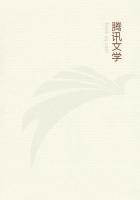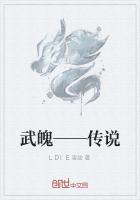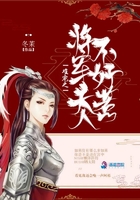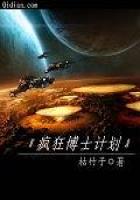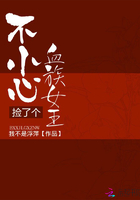In profound peace, enveloped in deeper unconsciousness than had been his for many nights, he lay on deck watching the tree-tops change their position slightly against the sky, and arch themselves, and sink and tower huge, until he passed from seeing them into dreams where he lay beneath the shadow of the vast trees, looking up into the sky.
When they woke next morning they had gone a considerable way up the river; on the right was a high yellow bank of sand tufted with trees, on the left a swamp quivering with long reeds and tall bamboos on the top of which, swaying slightly, perched vivid green and yellow birds. The morning was hot and still. After breakfast they drew chairs together and sat in an irregular semicircle in the bow.
An awning above their heads protected them from the heat of the sun, and the breeze which the boat made aired them softly. Mrs. Flushing was already dotting and striping her canvas, her head jerking this way and that with the action of a bird nervously picking up grain; the others had books or pieces of paper or embroidery on their knees, at which they looked fitfully and again looked at the river ahead.
At one point Hewet read part of a poem aloud, but the number of moving things entirely vanquished his words. He ceased to read, and no one spoke. They moved on under the shelter of the trees.
There was now a covey of red birds feeding on one of the little islets to the left, or again a blue-green parrot flew shrieking from tree to tree. As they moved on the country grew wilder and wilder.
The trees and the undergrowth seemed to be strangling each other near the ground in a multitudinous wrestle; while here and there a splendid tree towered high above the swarm, shaking its thin green umbrellas lightly in the upper air. Hewet looked at his books again.
The morning was peaceful as the night had been, only it was very strange because he could see it was light, and he could see Rachel and hear her voice and be near to her. He felt as if he were waiting, as if somehow he were stationary among things that passed over him and around him, voices, people's bodies, birds, only Rachel too was waiting with him. He looked at her sometimes as if she must know that they were waiting together, and being drawn on together, without being able to offer any resistance. Again he read from his book:
Whoever you are holding me now in your hand, Without one thing all will be useless.
A bird gave a wild laugh, a monkey chuckled a malicious question, and, as fire fades in the hot sunshine, his words flickered and went out.
By degrees as the river narrowed, and the high sandbanks fell to level ground thickly grown with trees, the sounds of the forest could be heard. It echoed like a hall. There were sudden cries; and then long spaces of silence, such as there are in a cathedral when a boy's voice has ceased and the echo of it still seems to haunt about the remote places of the roof. Once Mr. Flushing rose and spoke to a sailor, and even announced that some time after luncheon the steamer would stop, and they could walk a little way through the forest.
"There are tracks all through the trees there," he explained.
"We're no distance from civilisation yet."
He scrutinised his wife's painting. Too polite to praise it openly, he contented himself with cutting off one half of the picture with one hand, and giving a flourish in the air with the other.
"God!" Hirst exclaimed, staring straight ahead. "Don't you think it's amazingly beautiful?"
"Beautiful?" Helen enquired. It seemed a strange little word, and Hirst and herself both so small that she forgot to answer him.
Hewet felt that he must speak.
"That's where the Elizabethans got their style," he mused, staring into the profusion of leaves and blossoms and prodigious fruits.
"Shakespeare? I hate Shakespeare!" Mrs. Flushing exclaimed; and Wilfrid returned admiringly, "I believe you're the only person who dares to say that, Alice." But Mrs. Flushing went on painting.
She did not appear to attach much value to her husband's compliment, and painted steadily, sometimes muttering a half-audible word or groan.
The morning was now very hot.
"Look at Hirst!" Mr. Flushing whispered. His sheet of paper had slipped on to the deck, his head lay back, and he drew a long snoring breath.
Terence picked up the sheet of paper and spread it out before Rachel.
It was a continuation of the poem on God which he had begun in the chapel, and it was so indecent that Rachel did not understand half of it although she saw that it was indecent.
Hewet began to fill in words where Hirst had left spaces, but he soon ceased; his pencil rolled on deck. Gradually they approached nearer and nearer to the bank on the right-hand side, so that the light which covered them became definitely green, falling through a shade of green leaves, and Mrs. Flushing set aside her sketch and stared ahead of her in silence. Hirst woke up; they were then called to luncheon, and while they ate it, the steamer came to a standstill a little way out from the bank.
The boat which was towed behind them was brought to the side, and the ladies were helped into it.
For protection against boredom, Helen put a book of memoirs beneath her arm, and Mrs. Flushing her paint-box, and, thus equipped, they allowed themselves to be set on shore on the verge of the forest.
They had not strolled more than a few hundred yards along the track which ran parallel with the river before Helen professed to find it was unbearably hot. The river breeze had ceased, and a hot steamy atmosphere, thick with scents, came from the forest.
"I shall sit down here," she announced, pointing to the trunk of a tree which had fallen long ago and was now laced across and across by creepers and thong-like brambles. She seated herself, opened her parasol, and looked at the river which was barred by the stems of trees.
She turned her back to the trees which disappeared in black shadow behind her.

